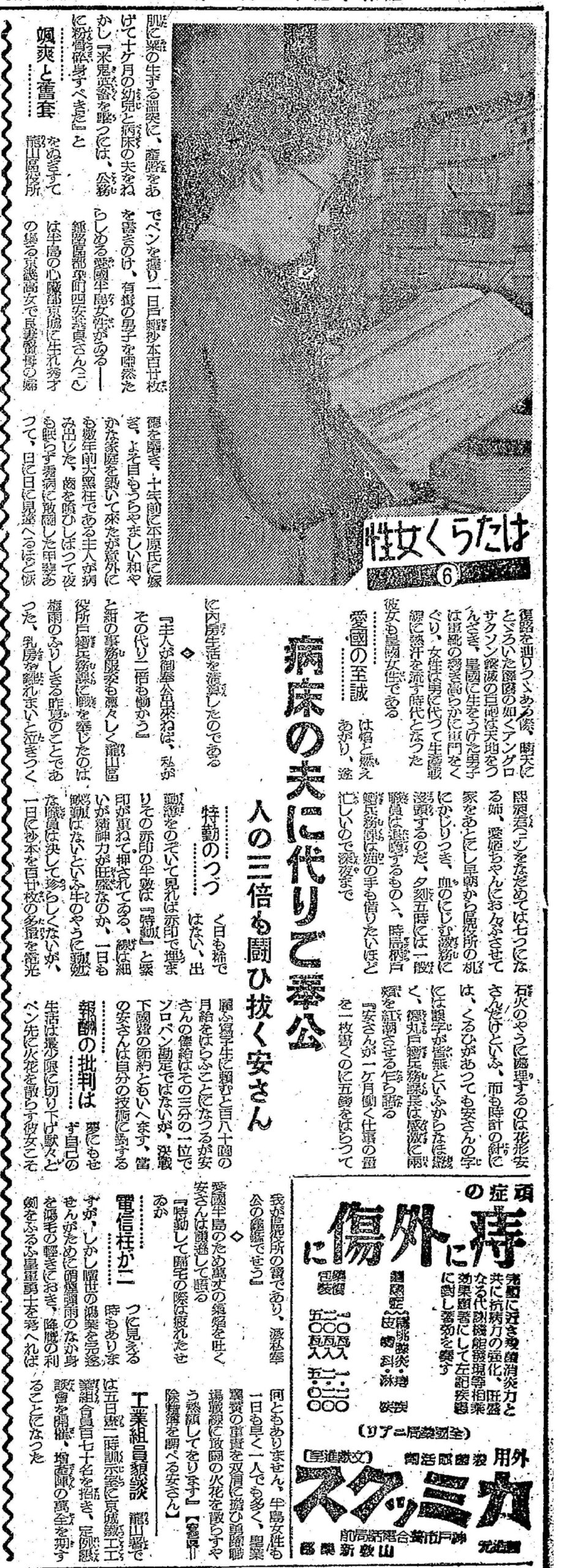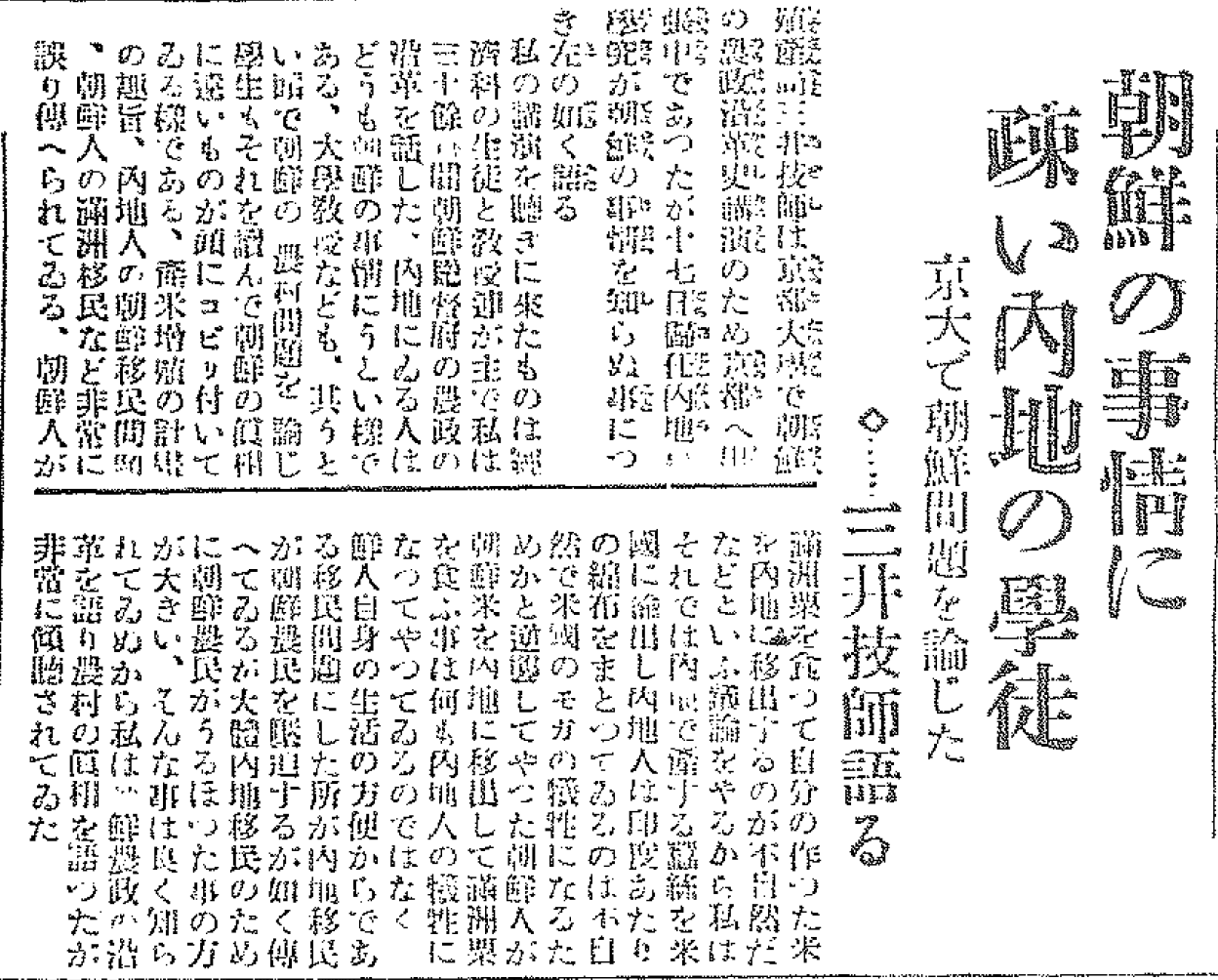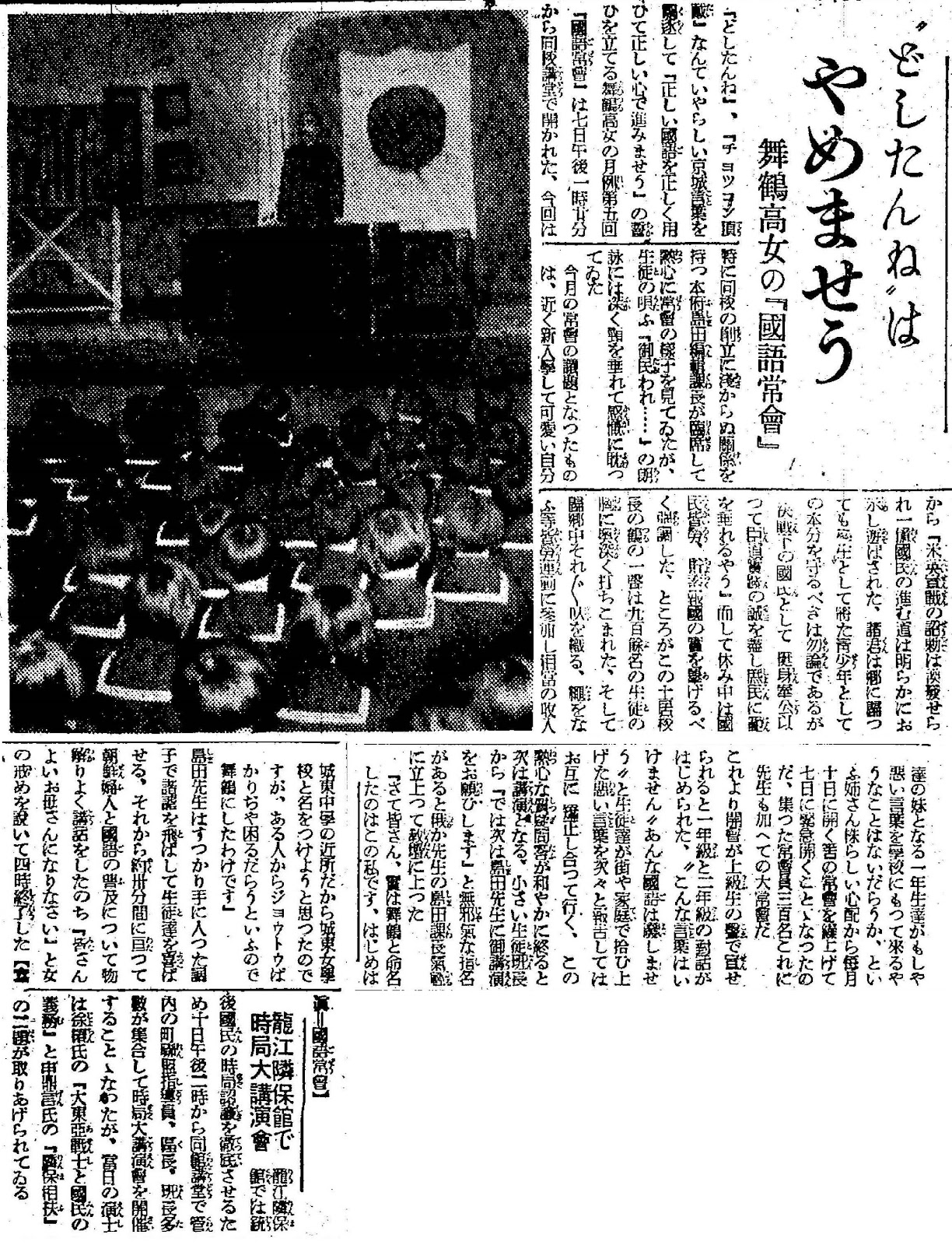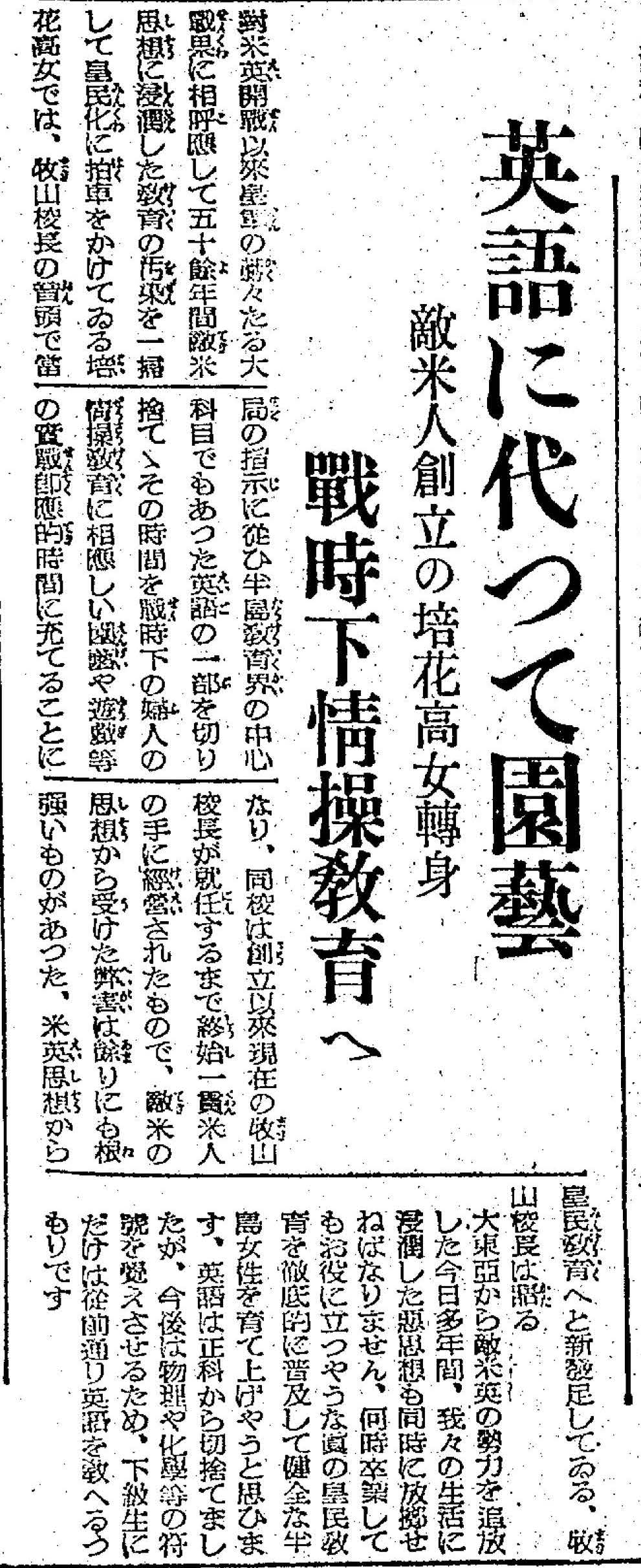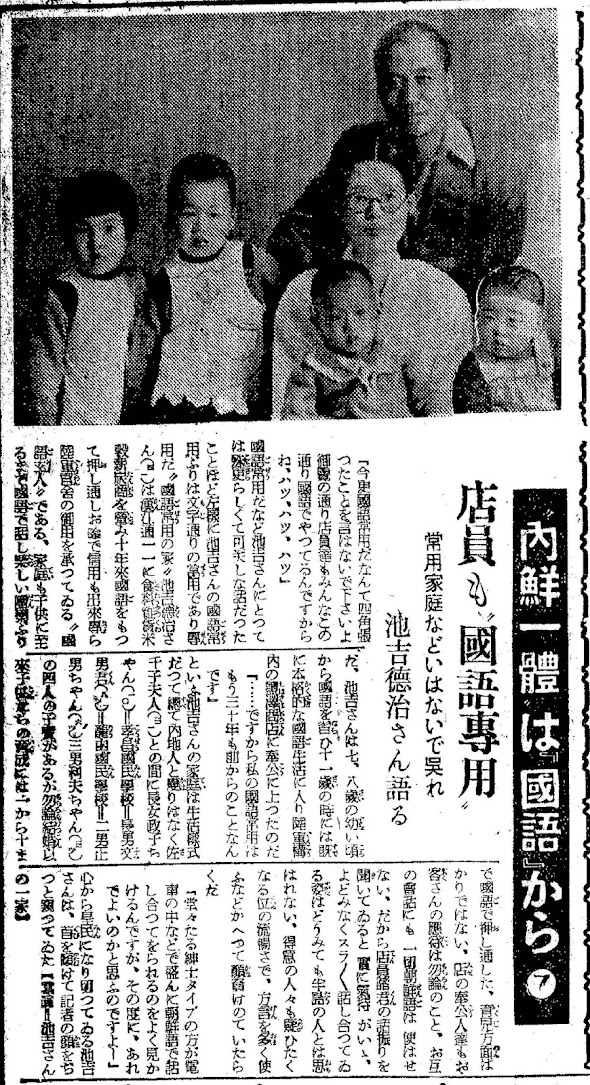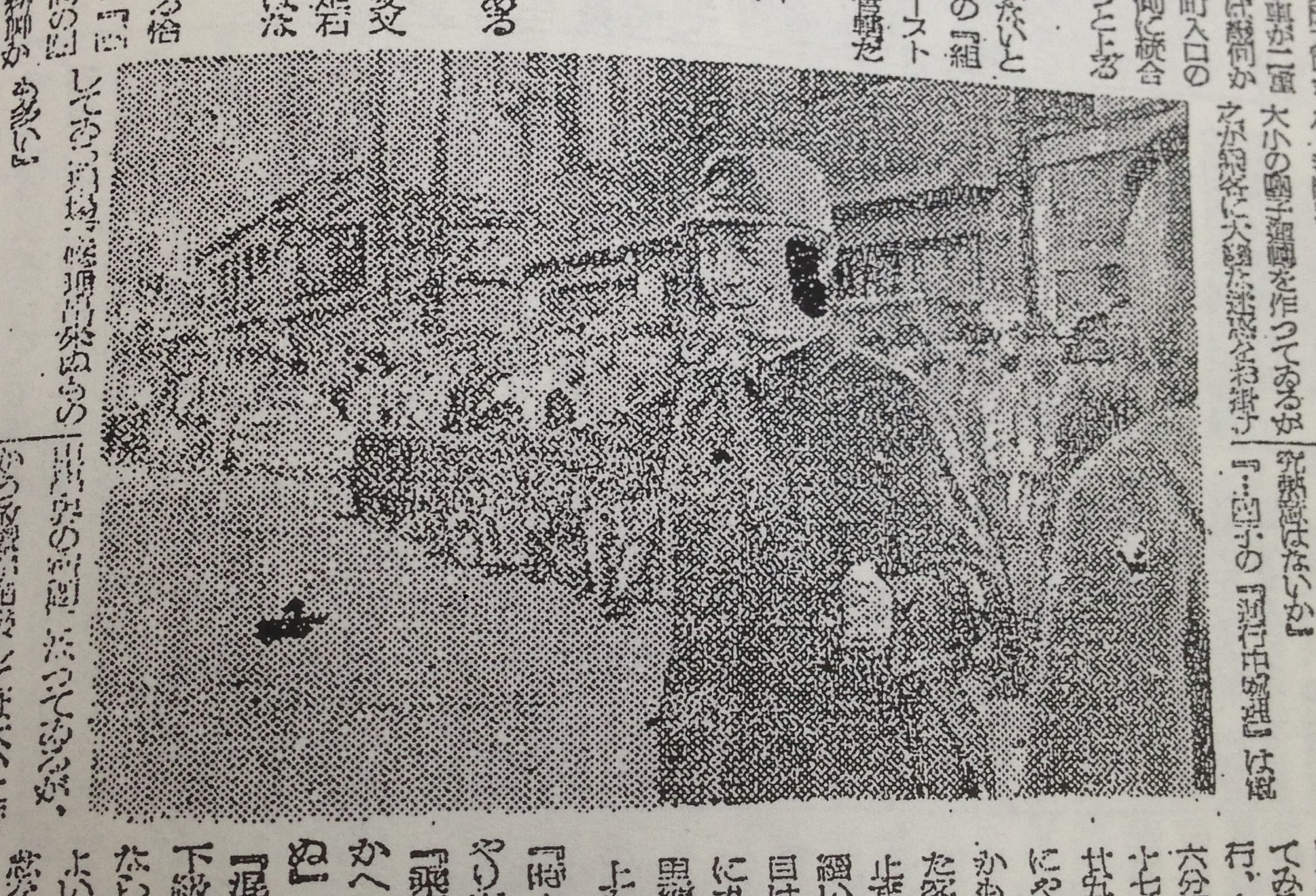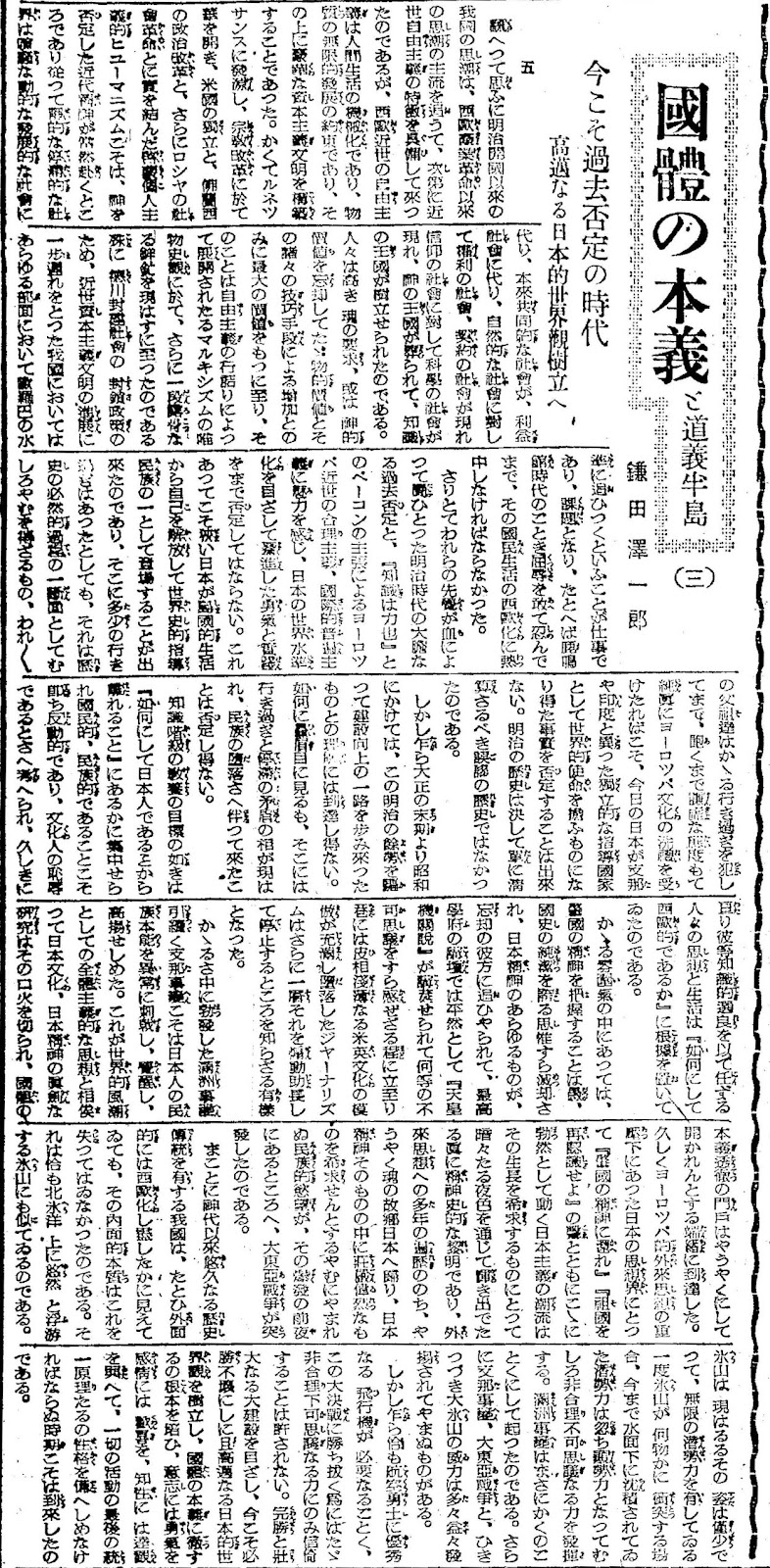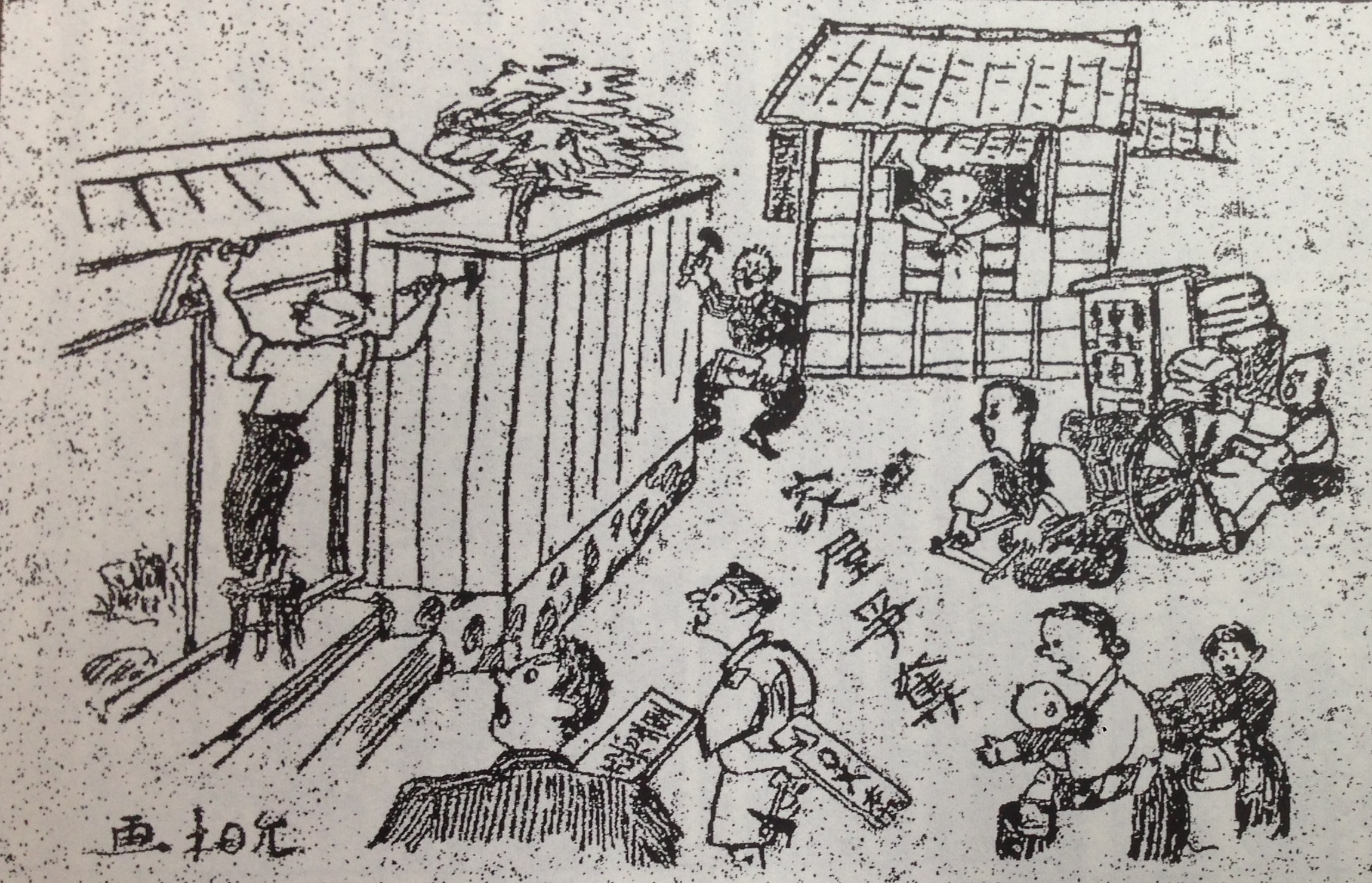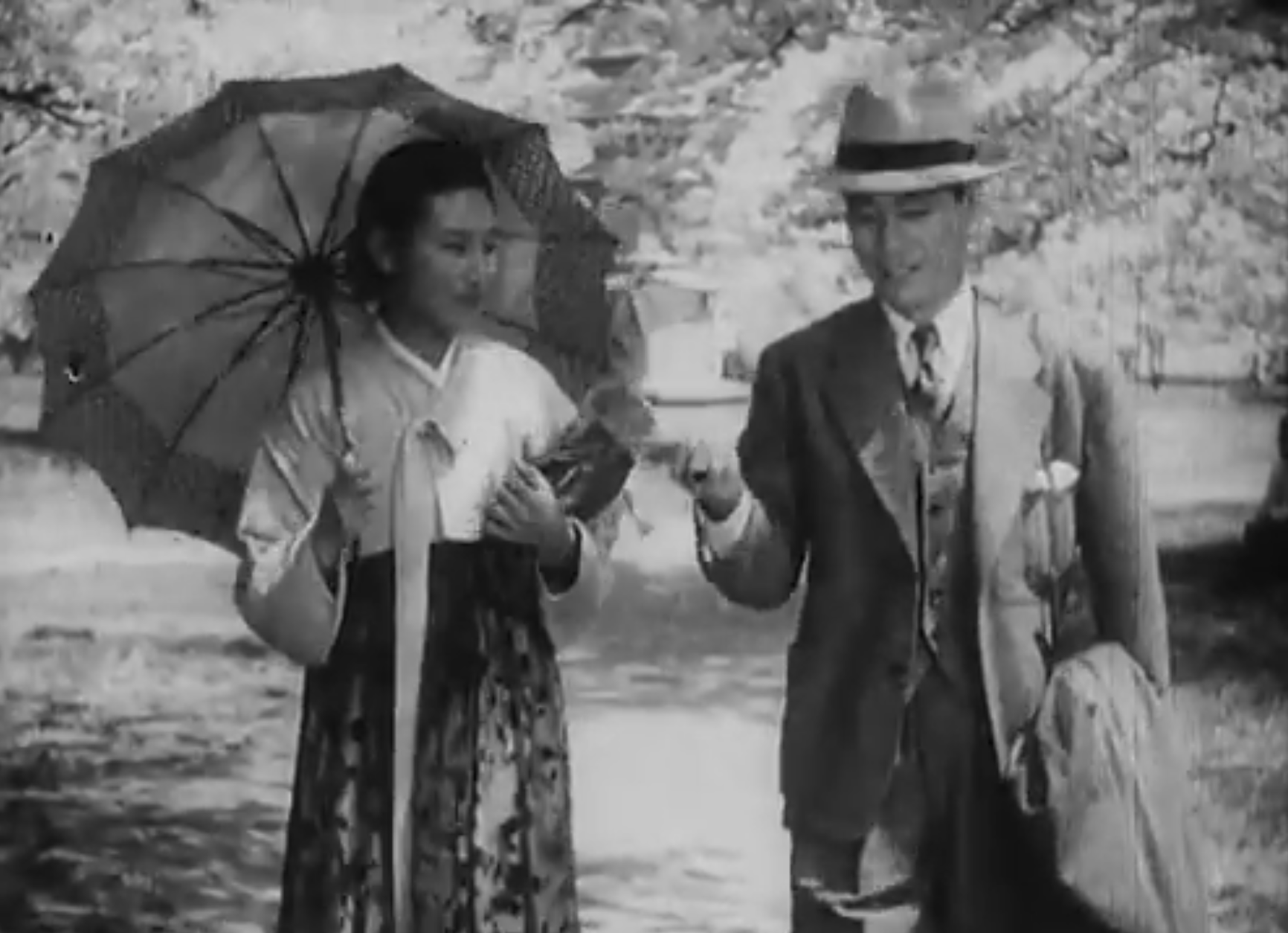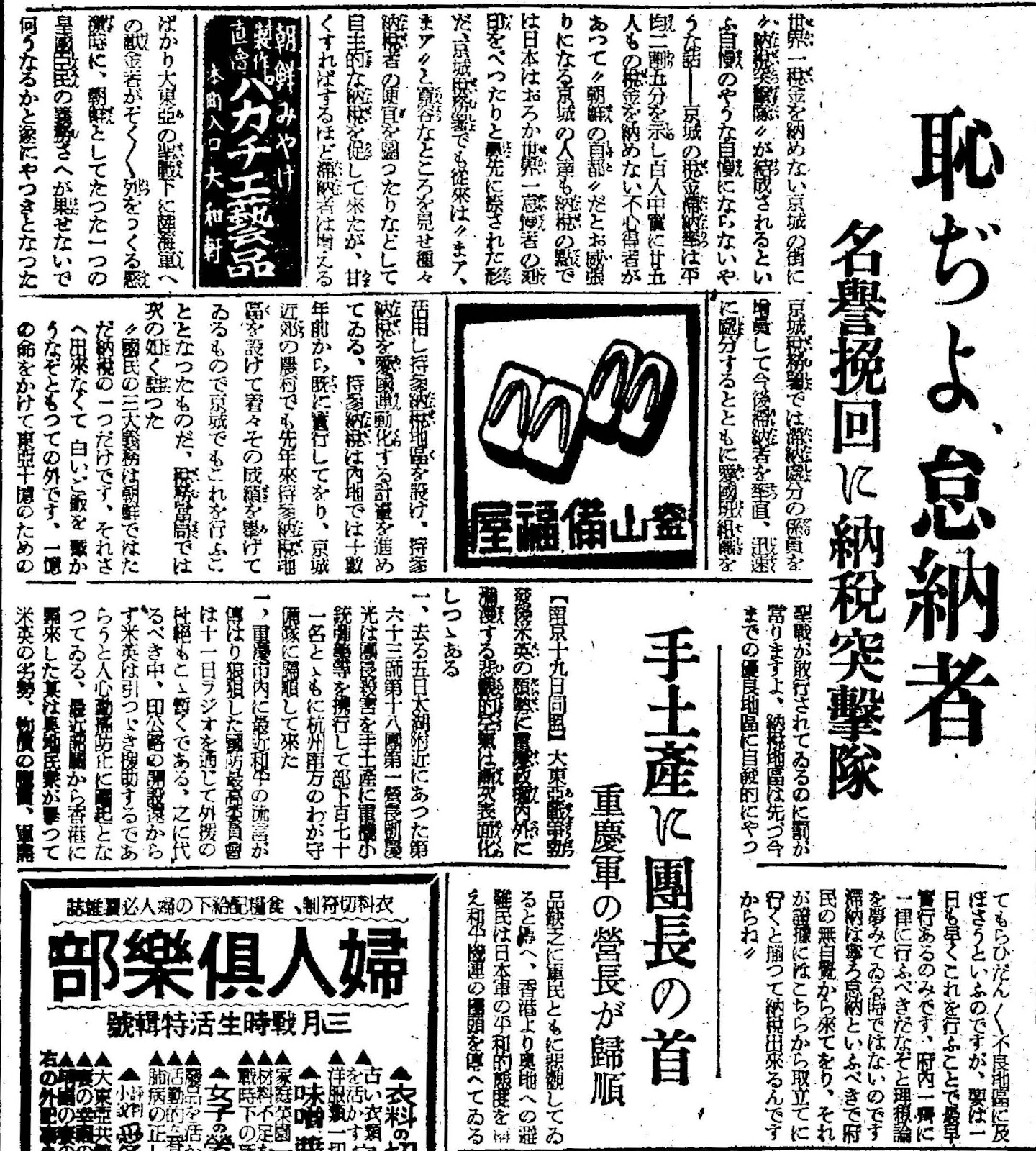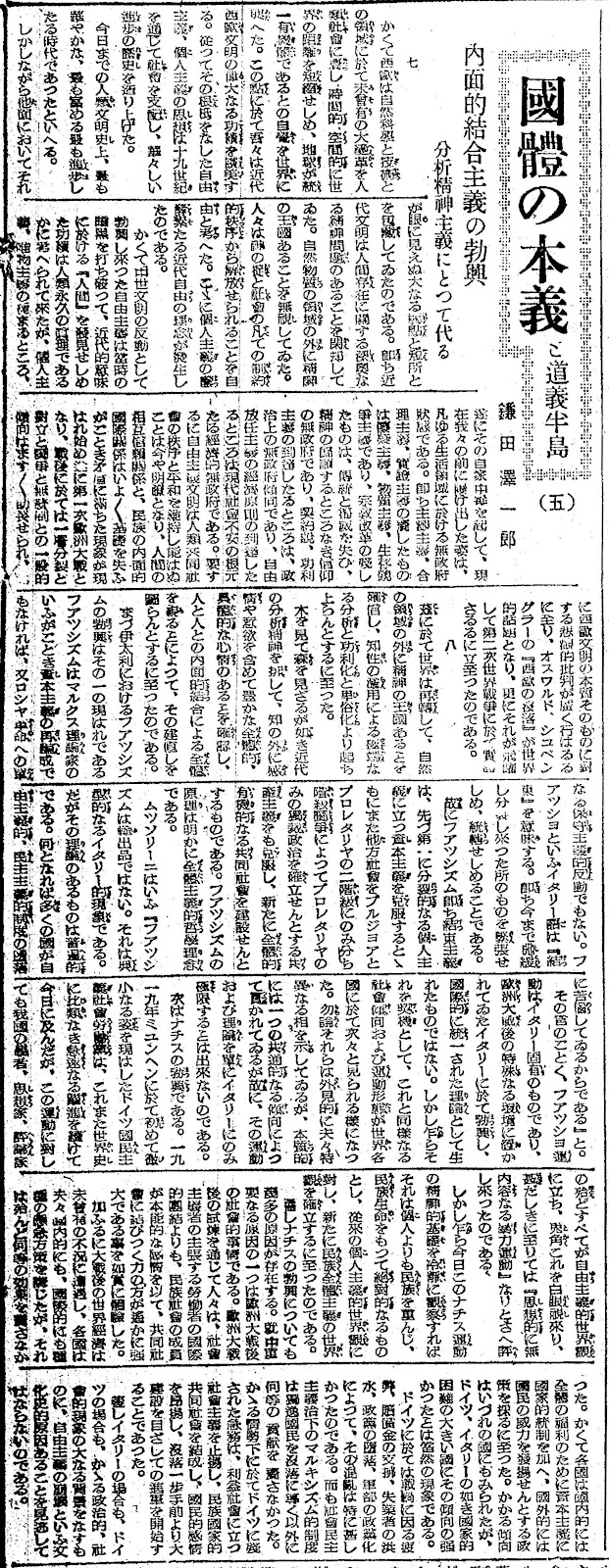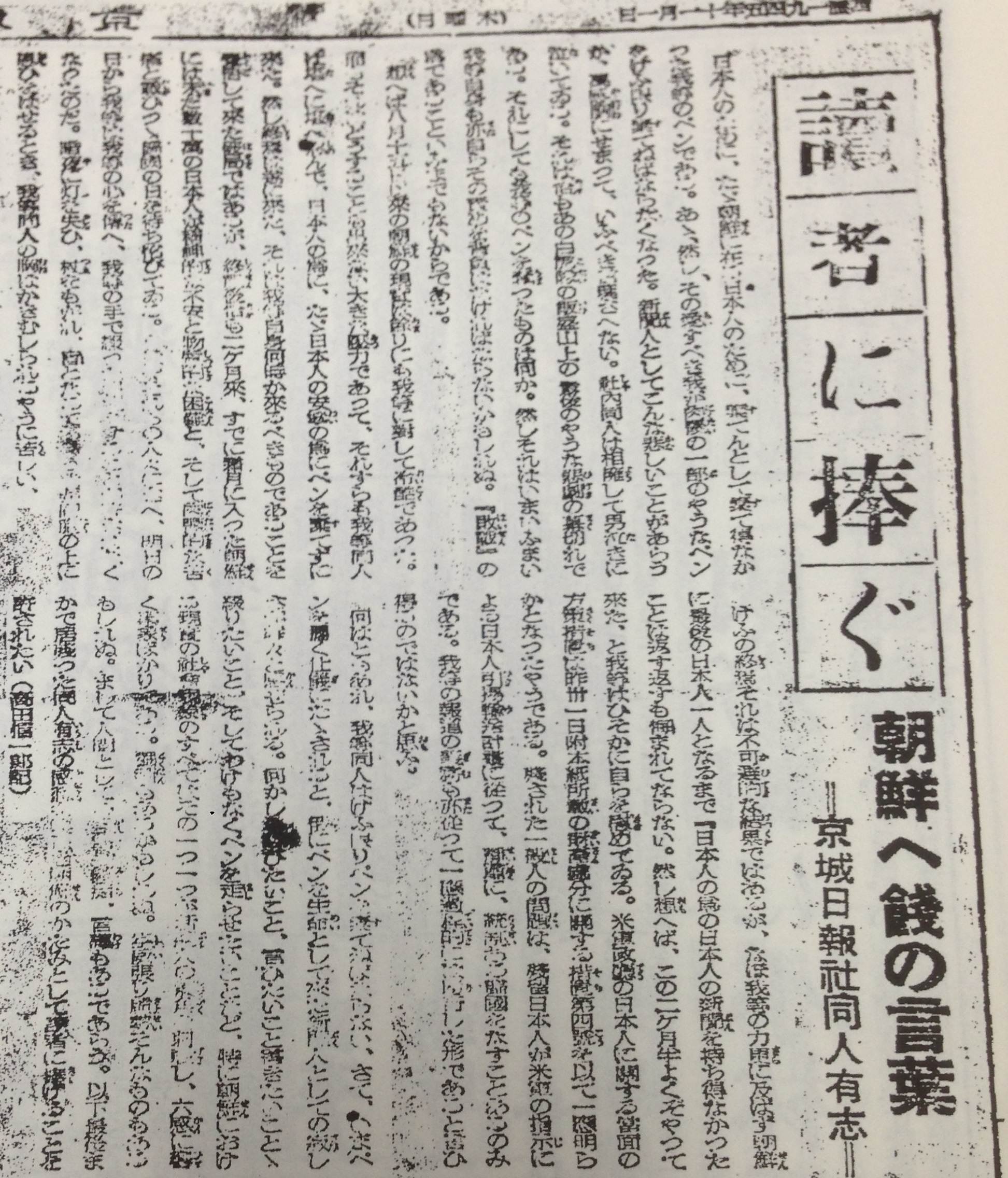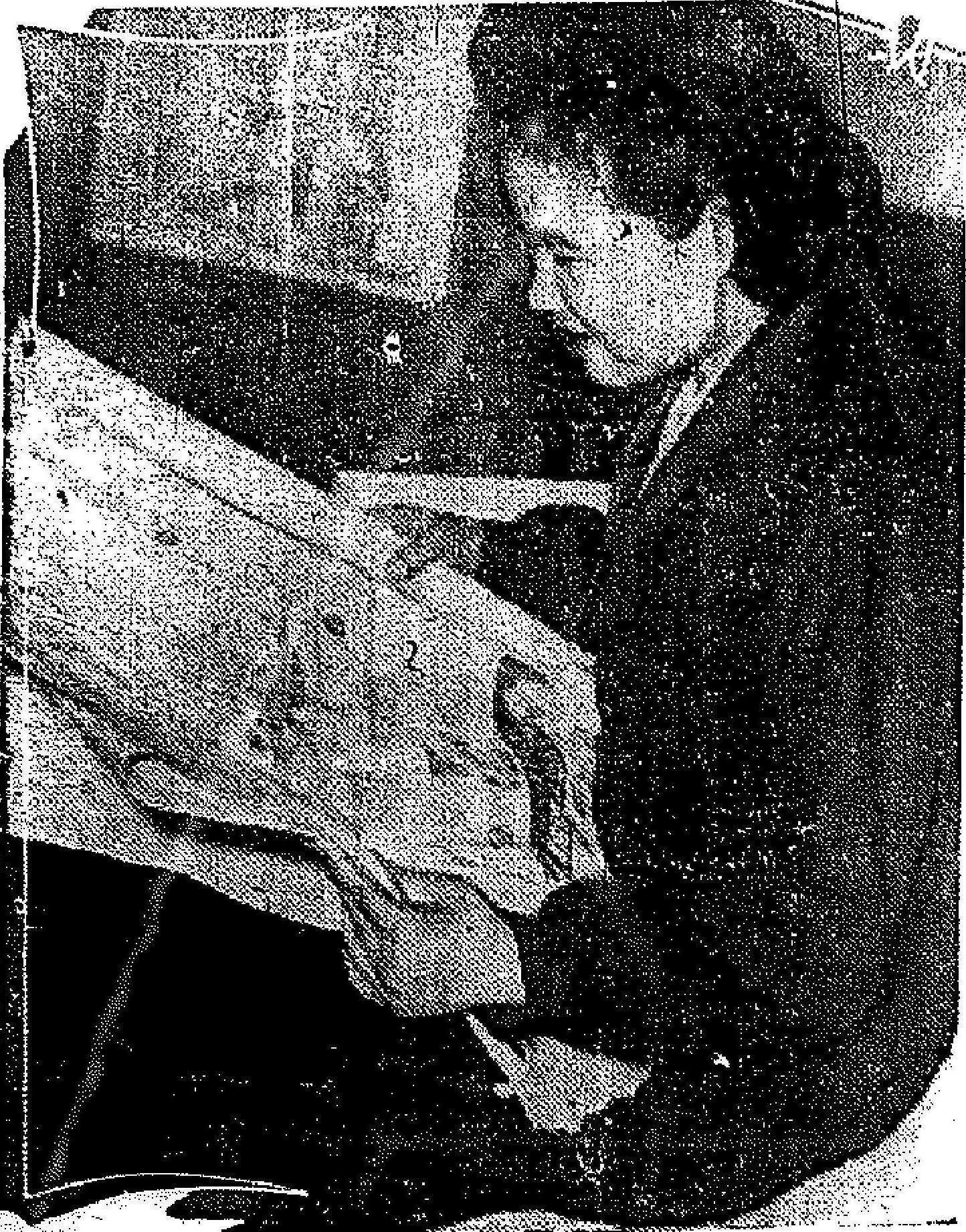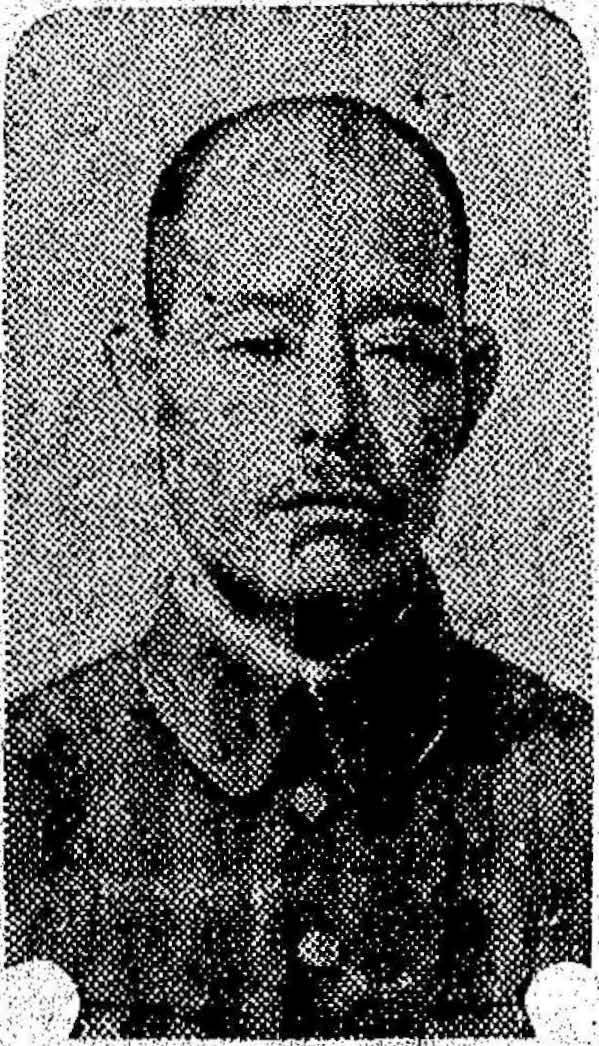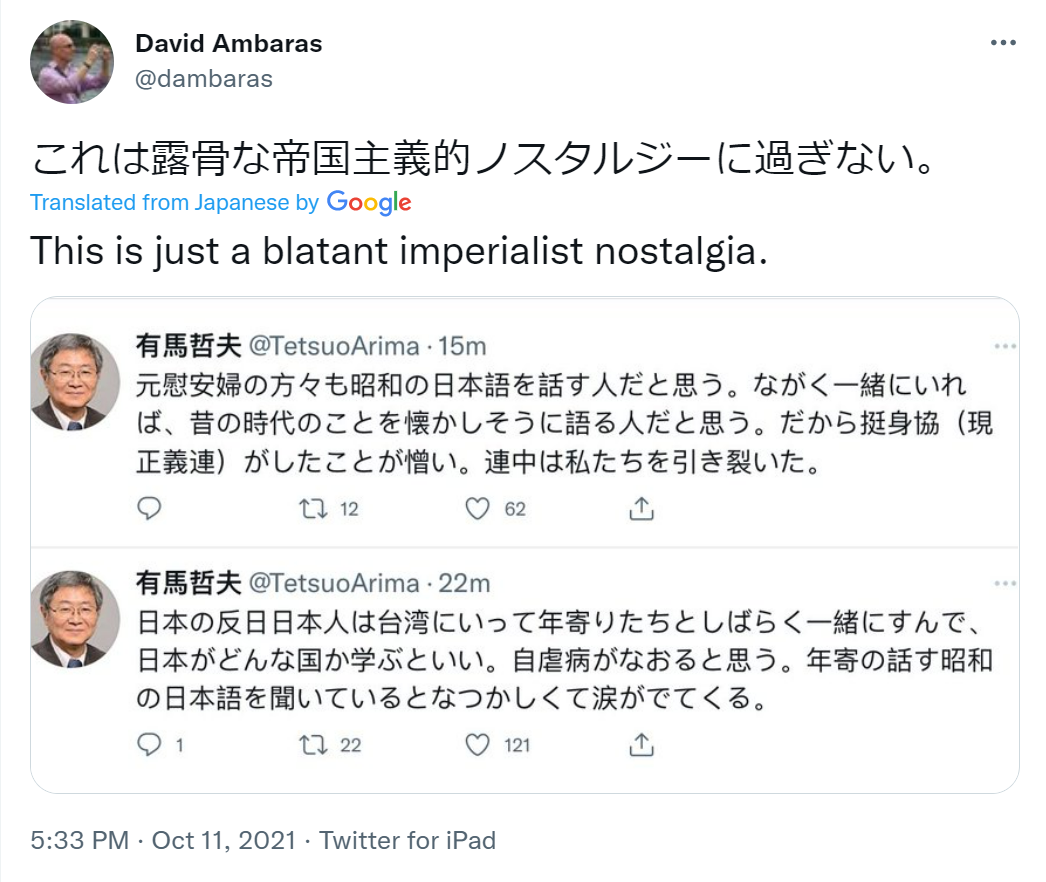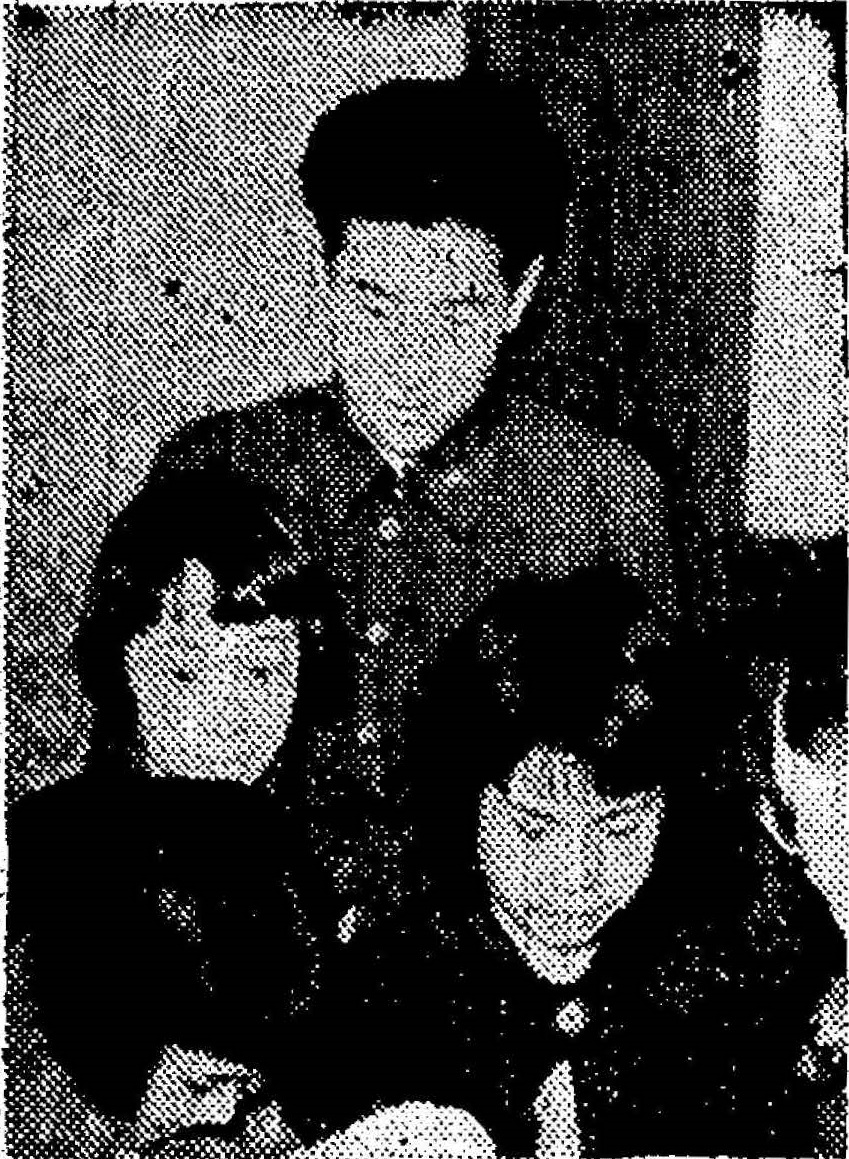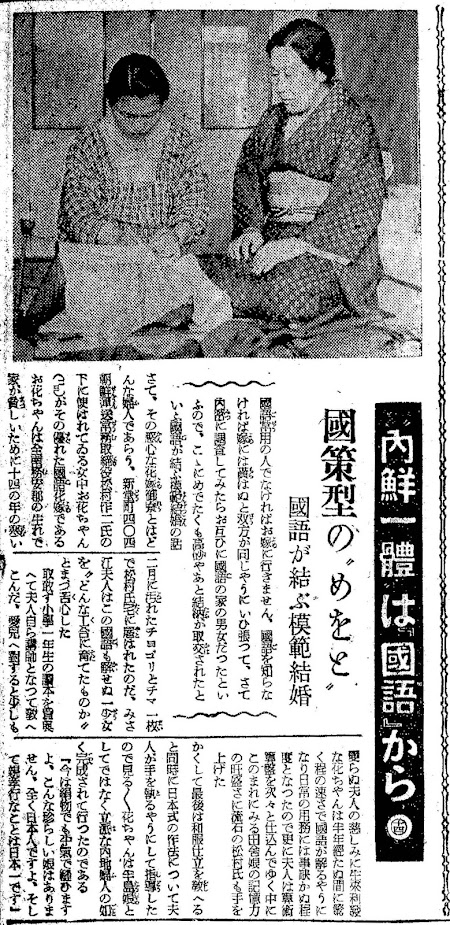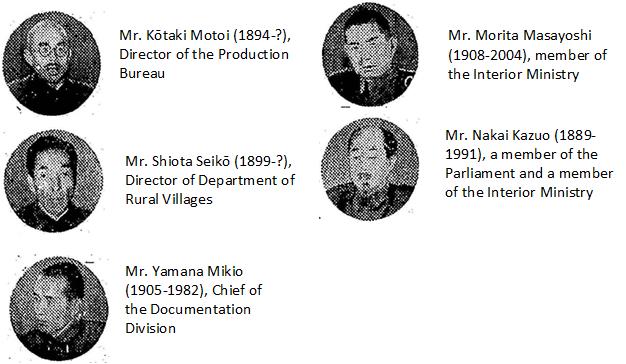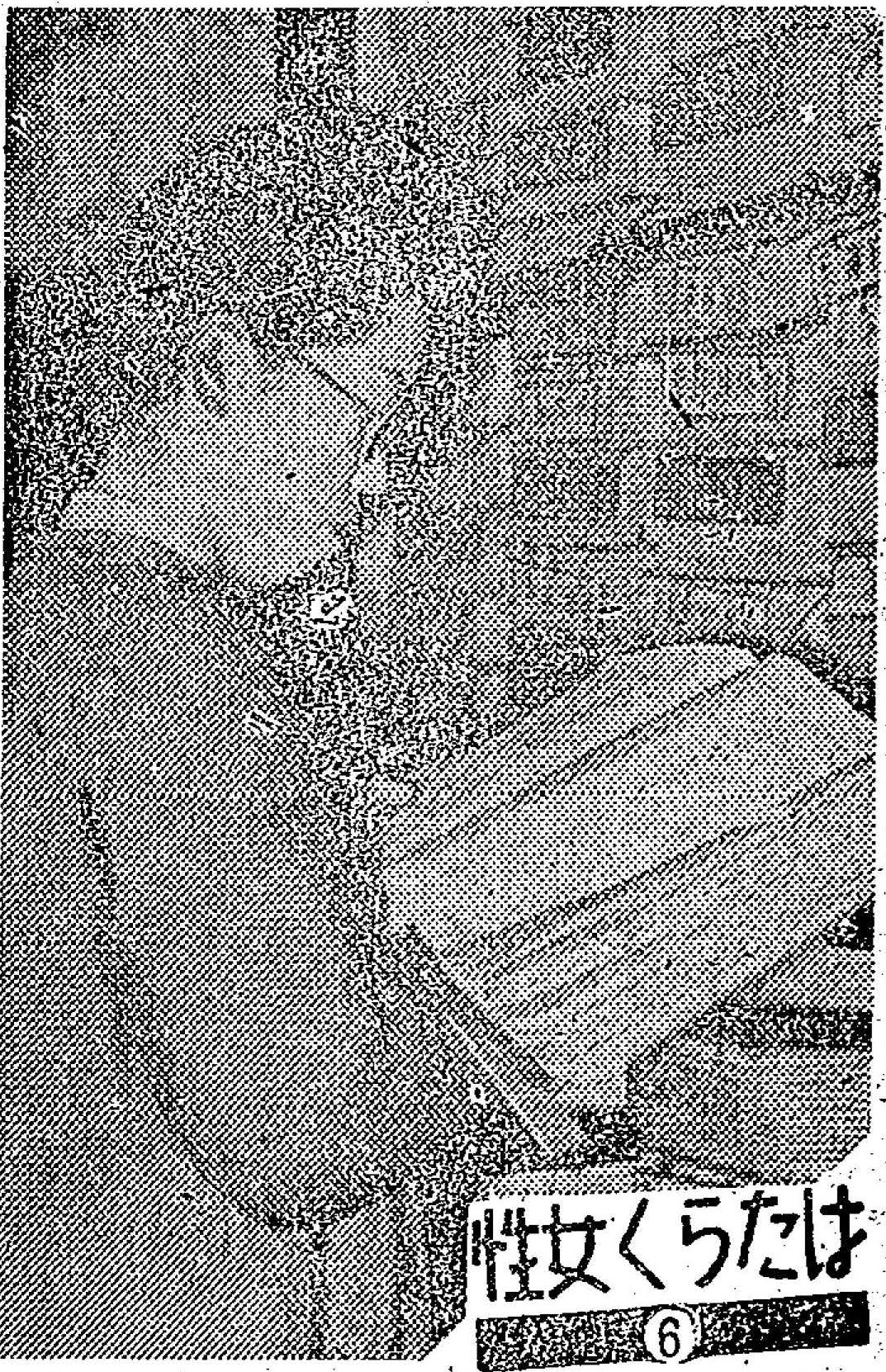
Model Korean mother left baby and bedridden husband behind at home to work as a clerk for Imperial Japanese Army, praised by boss for happily working overtime, early morning to late at night for 1/3 the usual pay without complaining, even when so exhausted she couldn’t see straight (Feb. 1944)
2024-02-10
428
1212
This article features Mrs. Ahn, a Seoul native, who in the midst of war, leaves behind her baby and bedridden husband to work as a clerk for the Imperial Japanese Army, presumably handling paperwork for newly enlisted soldiers. Notably, her 7-year-old daughter is tasked with caring for her 2-year-old son, a decision that seems quite extreme by today’s standards.
Initially, I surmised that Mrs. Ahn was married to a Japanese man with the surname Hirahara, as they were wed ten years prior to 1944, in 1934. This was before the Sōshi Kaimei, the period when Koreans adopted Japanese-style names en masse. However, I now harbor doubts about this assumption. The reason for my skepticism lies in the name of their son, Huichang, which is so distinctively Korean. This raises the possibility that the newspaper may have ‘retroactively’ claimed that the family went by the Hirahara name in 1934, even though they might not have adopted that name yet at that time.
Mrs. Ahn’s portrayal in the article brings to mind the iconic Rosie the Riveter from the U.S. World War II era. However, unlike Rosie, who symbolized the American women working in manufacturing and production during the war, Mrs. Ahn is depicted as a clerk. Yet, both characters represent women stepping into roles traditionally held by men due to the demands of a global conflict. Mrs. Ahn is shown working longer, harder, and more efficiently than her colleagues, while accepting only a third of the standard pay. By contemporary standards, this portrayal seems to endorse a very toxic work culture, one that valorizes excessive work hours, underpayment, and overwhelming workloads, all in the name of national duty and conservation during the war. It makes me wonder just how much of an impact Imperial Japan’s legacy might have had in shaping the work cultures of modern Japanese and Korean societies.
Such representations of ‘model workers’ were not uncommon in propaganda campaigns globally, but Imperial Japan’s approach, particularly its praise for workers who eagerly accept lower wages on top of longer working hours, might be quite unique. Have you ever encountered any other piece of propaganda, anywhere in the world, where the model worker is praised for accepting lower wages?
[Translation]
Gyeongseong Ilbo (Keijo Nippo) February 5, 1944
Taking Over for Her Sick Husband, Mrs. Ahn Fights Three Times as Hard in Public Service
Working Women [Part 6]
Mrs. Ahn was at home where the warmth of the ondol barely kept the chill at bay. After putting her ten-month-old baby to sleep and attending to her bedridden husband, she boldly declared, ‘To defeat the British and American beasts, I must devote myself to public service with all my might!‘ She cast aside her traditional role and, holding a pen in her hand at the Yongsan District Office, she impressively completed 120 copies of family register transcripts per day, astonishing her male colleagues with her patriotic fervor as a Korean woman.
Mrs. Ahn Gi-jeong (안기정, 安基貞), a 28-year-old resident of Jongno-gu, Doryeom-dong, was born in Seoul, the heart of the Korean Peninsula. She honed her virtues of a good wife and wise mother at the prestigious Gyeonggi Girls High School. Ten years ago, she married into the Hirahara family, building an enviable and harmonious household. Unexpectedly, a few years ago, her husband, the pillar of their family, fell ill. However, with determination and grit, she tirelessly cared for him through the nights without sleep, bravely battling through the ordeal of nursing him to health. Through her tireless care, he is on the path to recovery, just as the massive cannons of the annihilation campaign against the Anglo-Saxons are tearing through heaven and earth like thunderclouds booming on a clear day. In this era, men born in the Empire resoundingly march through the military gates to the beat of their military boots, while women, in place of men, sweat profusely on the production frontlines. She, too, is a woman of the Empire.
Her patriotic sincerity blazes like a flame, which led her to put an end to her indoor, anbang life. ‘If my husband cannot serve, I will work twice as hard in his place,’ she declared, looking resolute in her navy blue office uniform. Last summer, amid the rainy season, she took up a position in the Yongsan District Office’s Family Register and Military Affairs Section. Comforting her two-year-old son, Huichang (희창, 煕昶), who clung to her and refused to leave her breast, she entrusted him to the care of her seven-year-old daughter, Aehui (애희, 愛姫). Starting work at her desk in the district office early in the morning, she immerses herself in her intense job at the office, staying well past 5 PM when most of the office employees leave work. Due to the current state of affairs, the Family Register and Military Affairs Section is so busy that they would even welcome the help of a cat’s paw, making it not uncommon for her special duties to continue late into the night.
A glance at her attendance book shows it filled with red marks, half of which are overlaid with a purple stamp indicating ‘special duty’. Her physical frame may be slender, but her spirit is robust; she has not missed a single day, akin to the diligence of an ox. Although it is not rare for employees to be diligent, she stands out for processing a large volume of 120 transcripts a day with lightning speed. Moreover, it is astonishing that, unlike the clock’s hands that may err, her writing is completely free of mistakes.
Mr. Tokumaru, the chief of the Family Register and Military Affairs Section, his cheeks flushed with emotion, said, ‘If we were to pay a copywriter five sen per page for the amount of work Mrs. Ahn does in a month, it would cost 180 yen in monthly wages. However, Mrs. Ahn’s salary is about a third of that. It’s not about the financial bottom line, but it can be considered a way of saving the expenses of the nation in wartime. Mrs. Ahn herself never dreams of criticizing the compensation for her skills. She minimizes her own living expenses and silently spreads fireworks at the tip of her pen. She is truly a treasure of our district office and an example of selfless public service‘.
Mrs. Ahn, who passionately speaks of her patriotism for the Korean Peninsula, humbly says, ‘When I return home after special duty, sometimes I am so tired that the telephone poles seem to double when I look at them. However, when I think of the brave soldiers of the Imperial Army, who, despite gunfire and heavy rain, fight with the lightness of goose feathers and wield demon-slaying swords in order to accomplish the grand undertaking of this unprecedented era, my fatigue seems insignificant. I fervently wish that more Korean women will take up the important task of supporting the holy war effort, and courageously spread sparks of struggle on the battleline of the workplace.‘ [Photo = Mrs. Ahn reviewing the de-registration records]
Industrial Association Discussion: At Yongsan Station, a regular discussion meeting was held in the instruction room at 2 PM on February 5th, inviting 170 members of the Seoul Iron and Steel Industrial Association to ensure full preparation for increased production.
[Transcription]
京城日報 1944年2月5日
病床の夫に代りで奉公
人の三倍も闘い抜く安さん
はたらく女性【6】
肌に粟の生ずる温突に、産声をあげて十ヶ月の幼児と病床の夫をねかし『米鬼英畜を撃つには、公務に粉骨砕身すべきだ』と颯爽と旧套をぬぎすて龍山区役所でペンを握り一日戸籍抄本百二十枚を書きのけ、有髯の男子を唖然たらしめる愛国半島女性がいる。
鐘路区都染町安基貞さん(二八)は半島の心臓部京城に生れ秀才の集る京畿高女で良妻賢母の婦徳を磨き、十年前に平原氏に嫁ぎ、よそ目もうらやましい和やかな家庭を築いて来たが意外にも数年前、大黒柱である主人が病み出した。歯を食いしばって夜も眠らず看病に敢闘した甲斐あって、日に日に見違えるほど恢復路を辿りつつある際、晴天にとどろいた群雲の如くアングロサクソン撃滅の巨砲は天地をつんざき、皇国に生をうけた男子は軍靴の響き高らかに軍門をくぐり、女性は男に代って生産戦線に熱汗を流す時代となった。彼女も皇国女性である。
愛国の至誠は焰と燃えあがり、遂に内房生活を清算したのである。『主人が御奉公出来ねば、私がその代り二倍も働こう』と紺の事務服姿も凛々しく龍山区役所戸籍兵務課に職を奉じたのは梅雨のふりしきる昨夏のことであった。乳房を離れまいと泣きつく煕昶君(二つ)をなだめては七つになる姉、愛姫ちゃんにおんぶさせて家をあとにし、早朝から区役所の机にかじりつき、血のにじむ激務に没頭するのだ。夕刻五時には一般職員は退庁するものの、時局柄戸籍兵務課は猫の手も借りたいほど忙しいので深夜まで特勤のつづく日も稀ではない。
出勤簿をのぞいて見れば赤印で埋まり、その赤印の半数は『特勤』と紫印が重ねて押されている。線は細いが精神力は旺盛なのか、一日も欠勤はないという牛のように勤勉な職員は決して珍しくないが、一日に抄本を百二十枚の多量を電光石火のように処理するのは花形安さんだけという。而も時計の針には、くるいがあっても安さんの字には誤字が皆無というから、なお驚く。
徳丸戸籍兵務課長は感激に両頬を紅潮させる乍ら語る。『安さんが一ヶ月働く仕事の量を一枚書くのに五銭をはらって雇う写字生に頼むと百八十円の月給をはらうことになるが、安さんの俸給はその三分の一位で、ソロバン勘定ではないが、決戦下国費の節約ともいえます。当の安さんは自分の技術に対する報酬の批判は夢にもせず自己の生活は最小限に切り下げ黙々とペン先に花火を散らす彼女こそ我が区役所の宝であり、滅私奉公の亀鑑でしょう』
愛国半島のため万丈の気焰を吐く安さんは謙遜して語る。『特勤して帰宅の際は疲れたせいか、電信柱が二つに見える時もありますが、しかし曠世の鴻業を完遂せんがために硝煙強雨のなか身を鴻毛の軽きにおき、降魔の利剣をふるう皇軍勇士を考えれば何ともありません。半島女性も一日も早く一人でも多く、聖業翼賛の重責を双肩に担い、勇躍職場戦線に敢闘の火花を散らすよう熱願しております』【写真=除籍簿を調べる安さん】
工業組員懇談:龍山署では五日昼二時訓示室に京城鉄工工業組合百七十名を招き、定例懇談会を開催。増産陣の万全を期することになった。
Source: https://archive.org/details/kjnp-1944-02-05/page/n3/mode/1up
